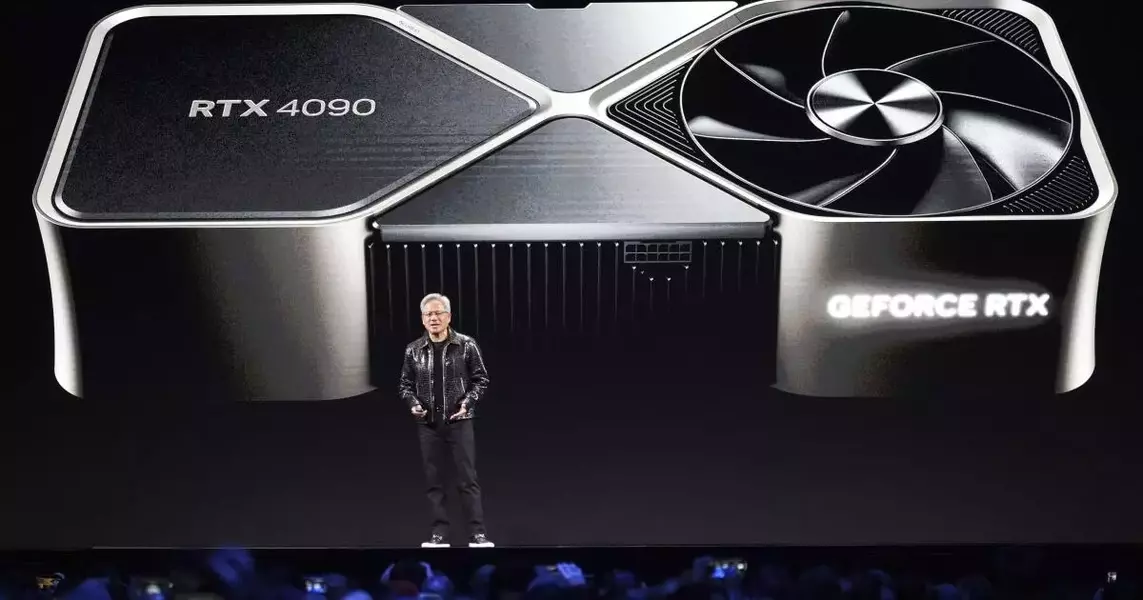Revolutionizing Entertainment: AI's Impact on CES 2025

NVIDIA's CEO, Jensen Huang, dazzled a large Las Vegas audience with the unveiling of Blackwell, an advanced AI chip that promises to transform computer graphics. The technology showcases unprecedented real-time rendering capabilities, marking a significant milestone in the evolution of digital processing. Meanwhile, AMD introduced its latest Ryzen 9 and AI processors, aiming to enhance performance for gamers and creators. Google and Samsung also presented innovative AI tools for their respective platforms, redefining user interaction with TVs and smart home devices. Discussions at CES also touched upon the broader implications of AI, including legal and ethical considerations surrounding generative AI and deep fakes.
Unveiling the Future of Graphics: NVIDIA’s Blackwell Chip
Huang showcased the power of Blackwell, highlighting its ability to deliver stunning visuals through complex geometry and lighting effects. This breakthrough is set to revolutionize gaming and content creation by offering unparalleled realism. The new chip leverages artificial intelligence to handle tasks previously deemed impossible, setting a new standard in the industry. NVIDIA’s innovation not only enhances visual fidelity but also opens up possibilities for developers and creatives.
The introduction of Blackwell marks a pivotal moment in computer graphics history. It represents a leap forward from programmable shading, which has been the cornerstone of graphical advancements for the past quarter-century. By harnessing AI, Blackwell can process intricate scenes with ease, enabling smoother gameplay and more immersive experiences. Developers now have access to tools that can significantly reduce production time while maintaining high-quality output. The chip’s widespread adoption could lead to a new era of visual storytelling across various media platforms.
Pioneering AI Integration: Innovations from AMD, Google, and Samsung
Beyond NVIDIA, other tech giants unveiled groundbreaking products at CES. AMD’s latest Ryzen 9 and AI processors aim to bridge the gap between powerful workstations and lightweight laptops. These processors promise to deliver exceptional performance, making it easier for users to engage in demanding tasks without compromising portability. Google’s preview of AI tools for Google TV introduces a more intuitive interface, allowing users to interact naturally with their devices. Samsung’s Vision AI further integrates smart home ecosystems, transforming TVs into intelligent hubs for entertainment and daily life management.
The impact of these innovations extends beyond hardware improvements. They signify a shift towards smarter, more interactive devices that cater to diverse user needs. AMD’s focus on performance optimization ensures that even thin and light laptops can handle resource-intensive applications seamlessly. Google’s AI-driven enhancements make navigating TV features as simple as having a conversation, enhancing user experience. Samsung’s approach to integrating AI into everyday devices demonstrates a commitment to creating comprehensive solutions that simplify lives. As these technologies mature, they promise to reshape how we interact with our environment, blending convenience with cutting-edge functionality.